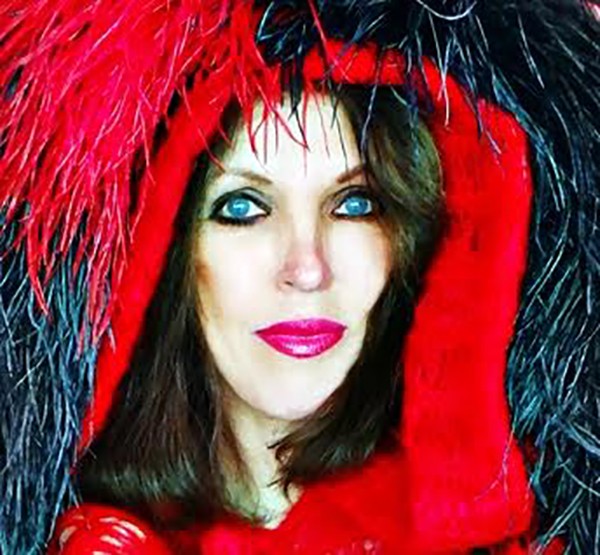B.B. King passed away this year, and now, after a 22-year run, the Blues Ball is going out with him.
On October 24th, the last Blues Ball will feature a lineup that includes William Bell, Will Tucker, Ruby Wilson, Susan Marshall, Jason D. Williams, Southern Halo, Memphis Jones, and others. And Lansky Brothers will be honored with an award for pioneering what Blues Ball founder and fashion designer Pat Kerr Tigrett calls “rock star styling.” The party, which is dedicated to King, starts at 7 p.m. at Gibson Guitar.

Pat Kerr Tigrett
“A friend of mine said, ‘The King of the Blues and the Queen of the Ball are leaving the building together,'” Tigrett said.
Over the years, the charity ball has raised $1.5 million for the Memphis Charitable Foundation, which supports a long list of local nonprofits.
The Blues Ball was founded in 1994, at a time when Tigrett said Memphians didn’t fully appreciate the native blues sound. But today, she says Memphis music is finally getting its due. The combination of King’s passing and the enshrining of the city’s musical history in local museums led Tigrett to the decision to end the party’s run. — Bianca Phillips
Flyer: How did the Blues Ball get started?
Tigrett: I lived in London for 20 years, and during that period, I would get in a car and the driver would say to me, “Where is that voice from?” I would say, “Memphis,” and invariably, it was like I’d given him the Holy Grail because I was from Memphis. The English really revere our musical heritage.
It was phenomenal that Memphians, at that time, were not recognizing the importance of our music industry and how it was touching others globally. I would come back to Memphis and be chairing the Symphony Ball, and everyone would ask me whom I was bringing in, like we needed to import other big bands from New York or Texas or Los Angeles. Finally, I was like, why are we trying to import people when we live in the middle of the mecca of American music?
I decided that I would found something exclusively for Memphis musicians. We are the only annual ball in America that has, for 22 years, been exclusively for Memphis musicians. We’ve had as many as seven stages and 16 groups playing each year. That’s included B.B. King, Al Green, Isaac Hayes, Jerry Lee Lewis, Rufus Thomas, Little Jimmy King, and Carl Perkins.
Memphis takes its musical heritage pretty seriously now. How different was it back then?
In 1977, I was living in London, and I had brought our son Kerr home [to Memphis] for his three-month check-up. I was meeting a friend of John [Tigrett] at the Pier for lunch. When I walked in, this lady asked me if I was okay. I said, “I’m not. I just heard Elvis died.” I’ll never forget it — she looked at me and said, “Who cares anything about that redneck truck driver?” That was the attitude during that time.
What was the first Blues Ball like?
The first year was at the Peabody in 1994. We sold it out, but I wouldn’t tell anybody who was going to play because I knew they wouldn’t buy tickets. I just told them it was a surprise, and you’ll regret it if you don’t come. But [later that night], people were standing on the tables because they were so excited about our unique Memphis sound.
So why are you ending the Blues Ball?
Timing is everything, and 22 years ago when we started this, just about the only [similar event] occurring in Memphis at the time was the Symphony Ball. And there was a smaller Opera Ball, but there was nothing celebrating Memphis music. Now, we have at least four wonderful museums that feature our great Memphis musicians.
What will you do with your spare time after the last Blues Ball?
I want the Blues Ball legacy to be chronicled in a documentary. We have 22 years of professional videos documenting everything. I think 50 years from now, it will be an important component of our continuum of Memphis music heritage.